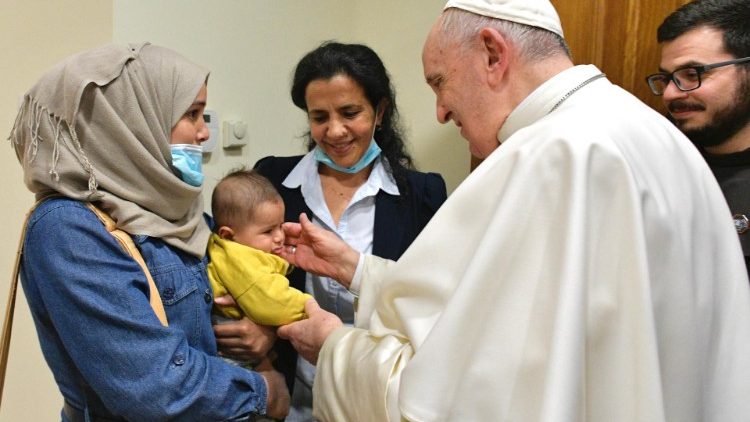Cardinal Arizmendi: Blessings in special cases
Jesus is close and merciful to sinners, but he always invites us to convert, to stop sinning, to live as daughters and sons of the Father God

Cardinal Felipe Arizmendi, bishop emeritus of San Cristóbal de Las Casas and responsible for the Doctrine of the Faith at the Conference of the Mexican Episcopate (CEM), offers Exaudi readers his weekly article titled “Blessings in special cases.”
***
LOOK
The Declaration Fiducia Supplicans of the Dicastery for the Doctrine of the Faith, approved by Pope Francis, has caused a great stir regarding the possibility of imparting a blessing to people in so-called irregular situations (because they do not live according to the Catholic rule inspired by the Bible). They are those who live in a free union, without the sacrament of marriage, the divorced and remarried, and, in particular, same-sex couples who live together maritally. The reasons for these blessings and the conditions for giving them are explained. I don’t know why so much noise, if that has been done many times!
I have some nephews who got married in the Church (I presided over their wedding), but then they separated from their partner and now live with another woman. They frequently ask me for a blessing, and I have never had a problem with conscience granting it to them. They are not asking for a validation of their new union, I am not giving them sacramental communion, but I am only entrusting them to God to free them from evil and to do well. Likewise, they and all people know that we are not celebrating a new marriage sacrament, but rather asking God to grant them the favor of it. I have always done this! I never deny them the baptism of their children. Even more, at the end of that sacrament, as indicated in the Ritual of the Baptism of Children, with the liturgical formula that has indicated the same ceremonial of the Church for many years, I give the blessing to the mother, the father and those present. This liturgical blessing is not equivalent to the sacrament of marriage, and everyone is aware of this. We do the same with people who live in a free union. If possible, we urge you to formalize your union sacramentally, but no one understands that, by baptizing their children and blessing their parents, this is equivalent to the sacrament of marriage.
Things get complicated with same-sex couples who live together maritally. The Declaration of the Dicastery is very clear when it states on several occasions that blessing them is not a sacrament, it is not an approval of their situation, it is not blessing the sin in which they legally are, but only a supplication made spontaneously, not liturgically, to May God help you, free you from evil and accompany you. This cannot be denied to anyone. Although the case is not comparable, we bless drunks, drug addicts, even drug traffickers, and that does not mean we approve of their lives. We bless animals, houses, vehicles, businesses, etc., and people are worth much more. Some time ago, they asked a priest to bless a business premises; he did it without problem; but then he found out that it was a brothel… Can the blessing be erased? The practice of prostitution is not blessed; I hope that the blessing helps those who live from it to repent and change their lives.
A very friendly priest has a great-nephew who lives in France. He recently came to visit his parents and his family, but he is gay and brought his partner, of the same tendency, with whom he lives. Although the family and the priest do not approve of this union, they cannot reject it, since he is his son or nephew. When he returned to France, they asked God to do well for him. This is not legitimizing that union, but only begging for God’s mercy.
DISCERN
I share some phrases from the cited document, ratified in a subsequent press release: “This Declaration remains firm in the traditional doctrine of the Church on marriage, not allowing any type of liturgical rite or blessing similar to a liturgical rite that could cause confusion. And it is precisely in this context that one can understand the possibility of blessing couples in irregular situations and same-sex couples, without officially validating their status or altering in any way the perennial teaching of the Church on Marriage” (Presentation).
“Rites and prayers that may create confusion between what constitutes marriage, as an “exclusive, stable and indissoluble union between a man and a woman, naturally open to begetting children,” and what contradicts it, are inadmissible. This conviction is founded on the perennial Catholic doctrine of marriage. Only in this context do sexual relations find their natural, adequate and fully human meaning. The doctrine of the Church on this point remains firm” (4).
“Given that the Church has always considered morally licit only sexual relations that occur within marriage, it does not have the power to confer its liturgical blessing when it, in some way, can offer a form of moral legitimacy to a union that presumes to be a marriage or an extramarital sexual practice” (11).
“In the mystery of his love, through Christ, God communicates to his Church the power to bless. Granted by God to human beings and granted by them to their neighbors, the blessing is transformed into inclusion, solidarity and pacification. It is a positive message of comfort, care and encouragement. The blessing expresses the merciful embrace of God and the motherhood of the Church, which invites the faithful to have the same feelings as God toward his own brothers and sisters” (19).
“Whoever asks for a blessing shows himself to be in need of the saving presence of God in his history, and whoever asks for a blessing from the Church recognizes the latter as a sacrament of the salvation that God offers. To seek blessing in the Church is to admit that ecclesial life springs from the depths of God’s mercy and helps us to move forward, to live better, to respond to the will of the Lord” (20).
“It is God who blesses… We are more important to God than all the sins that we can commit, because He is a father, He is a mother, He is pure love, He has blessed us forever. And he will never stop blessing us” (27).
ACT
Let us have a heart like God’s. He always blesses us, because we are his children, although he does not approve or bless our sins. Jesus is close and merciful to sinners, but he always invites us to convert, to stop sinning, to live as daughters and sons of the Father God. The evangelist Mark says that Jesus’ first preaching is: “Repent and believe in the Gospel” (Mk 1:15). May the Holy Spirit and the Virgin Mary help us.
Related

Francis’s Legacy: The Church, a Field Hospital
Isabel Durán Doussinague
23 April, 2025
2 min

The Challenges of the Next Pope and the Path of Grace
Javier Ferrer García
23 April, 2025
4 min

Easter for a Life of Hope
Mario J. Paredes
21 April, 2025
4 min

Munilla: ‘Chronic Adolescence’ or ‘Maturity in Christ’
Exaudi Staff
21 April, 2025
3 min
 (EN)
(EN)
 (ES)
(ES)
 (IT)
(IT)

